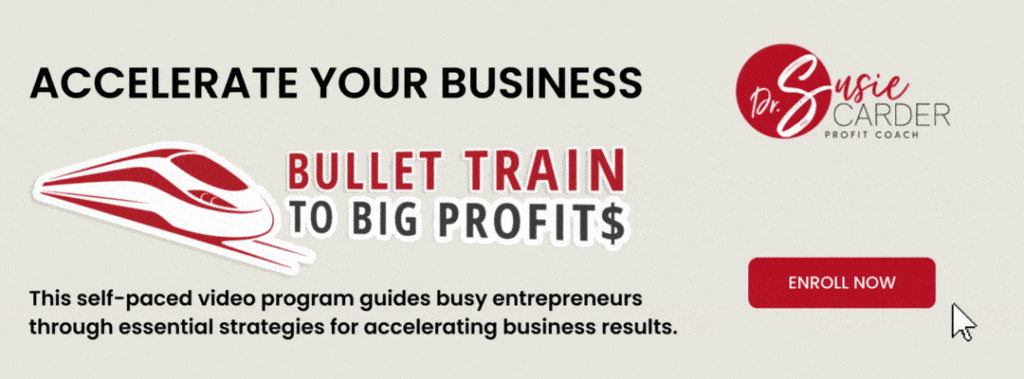In the fast-paced and highly competitive world of business, having a well-thought-out and comprehensive strategic plan to increase sales is not just an advantage – it’s an absolute necessity. An effective strategy to increase sales can be the key to unlocking your business’s full potential, allowing you to not only achieve greater success but also outperform your competitors. I will shed light on proven strategies and techniques that can significantly enhance your sales processes, leading to exponential growth and long-term sustainability for your business.
By implementing these strategies and leveraging your unique strengths, you can position your business as a leader in your industry and maximize its profitability and market share. So, whether you are an established business owner or an aspiring entrepreneur, this blog post is a must-read to gain valuable insights and actionable tips on how to optimize your sales efforts and propel your business toward unprecedented success.
Understanding the Role of a Fractional COO in Sales
A Fractional Chief Operating Officer (COO) plays a critical role in enhancing sales by bringing expertise, experience, and a strategic perspective to the business. They operate on a part-time or contract basis, providing the same level of operational excellence as a full-time COO would. They step in to identify bottlenecks in the current sales processes, develop effective strategies to increase sales, and implement these strategies to ensure your business is competitive and profitable in the market.
The Fractional COO recognizes the criticality of a business’s sales function and its influence on the financial outcome. They collaborate closely with the sales team, providing leadership and guiding them to meet their sales targets. For instance, they may establish efficient and scalable sales processes, such as redefining sales roles and identifying key performance indicators (KPIs). Additionally, they can introduce advanced sales technology tools like customer relationship management (CRM) systems or sales automation software to streamline operations and enhance productivity.
Moreover, the Fractional COO brings an outside perspective to the business, providing unbiased insights into the current market trends, competition, and customer needs. One of their primary roles is to conduct market research and competitor analysis, helping you understand what your consumers want, and how you can differentiate your offerings. This wealth of knowledge allows them to formulate a strategic plan tailored to your business’s needs and the market it operates in, ensuring you stay ahead of your competition and boost your sales performance.

Understanding Your Market and Competition
Understanding your market and competition is a vital aspect of strategic planning. Here are some tips to help you gain a comprehensive understanding:
- Stay up-to-date with market trends: By actively monitoring the latest industry developments, such as the rise of electric vehicles in the automotive industry or the growing demand for plant-based alternatives in the food industry, you can identify emerging opportunities and adapt your offerings accordingly.
- Listen to your customers: Engage with your target audience through surveys, focus groups, and social media interactions to gain valuable insights into their needs, preferences, and pain points. For example, in the technology industry, companies like Apple and Samsung constantly gather customer feedback to improve their products and enhance user experience.
- Conduct thorough competitor analysis: Analyze your competitors’ strategies, strengths, weaknesses, and market positioning. This knowledge can help you identify gaps in the market and develop a unique value proposition that sets your business apart. For instance, in the retail industry, companies like Amazon and Walmart analyze their competitors’ pricing strategies and customer reviews to gain a competitive edge.
Remember, continuous learning and adaptation are key to staying ahead in the market. By consistently staying informed, listening to your customers, and keeping a close eye on your competition, you can make well-informed strategic decisions and position your business for long-term success.
Developing a Comprehensive Strategy to Increase Sales
To foster business growth and achieve success, it is imperative to carefully consider various key factors within your sales plan. Ensure that your sales plan encompasses the following essential elements:
- The study of consumer preferences, buying patterns, and competitor pricing strategies is crucial. For instance, conducting market research to understand if customers prefer eco-friendly products or if they are price-sensitive can help tailor your sales strategy accordingly.
- Crafting a strategy to increase sales that resonates with your target audience and stands out from the competition is essential. For example, using storytelling techniques or leveraging social media platforms to engage customers can be effective.
- Understanding what your consumers want, such as personalized customer experiences and high-quality products, is vital. For instance, offering customization options or implementing a quality control process can enhance customer satisfaction.
- Aligning your offerings accordingly to create a compelling value proposition is key. For example, bundling products or offering exclusive discounts can provide added value to customers.
- Offering unique product features, exceptional customer support, or implementing innovative marketing strategies can set you apart from competitors. For example, introducing a loyalty program, providing 24/7 customer assistance, or utilizing influencer marketing can help attract and retain customers.
By ensuring a well-crafted sales plan and a compelling value proposition, you can drive business growth and success. Continuously refine and adapt your approach based on market dynamics, consumer feedback, and emerging trends to stay ahead of the curve and maximize your sales potential.
Implementing Your Sales Strategy
After successfully formulating a robust sales strategy, the subsequent crucial phase is its diligent and effective implementation. This pivotal step requires careful planning, coordination, and execution to ensure optimal results. To assist you in this endeavor, here are some valuable tips that will serve as your guiding light, helping you navigate the path to success with confidence and precision. The implementation phase is where your strategy truly comes to life, and by paying attention to the finer details and staying adaptable, you can ensure a seamless and impactful execution that yields tangible results.
Train your sales team: Provide comprehensive training to equip your team with the necessary skills and knowledge to effectively execute the strategy. This includes product knowledge, objection-handling techniques, and effective communication skills.
Refine your sales pitch: Continuously improve your sales pitch by identifying and addressing pain points, highlighting unique selling propositions, and adapting to customer feedback. Tailor your pitch to the specific needs and preferences of your target audience.
Track your progress: Regularly monitor key performance indicators (KPIs) to evaluate the effectiveness of your strategy. This will help you identify areas for improvement and make data-driven decisions. Analyze sales metrics such as conversion rates, average deal size, and sales cycle length.
Stay flexible: Remember that a sales strategy should be adaptable. As you gather insights and analyze results, be prepared to make adjustments and optimize your approach for better outcomes. Stay updated with market trends, customer preferences, and competitive landscape.
By carefully implementing and consistently following these valuable tips, you can confidently adapt your strategy to increase sales to the ever-changing business landscape. This proactive approach will not only ensure that your sales strategy remains effective in achieving your goals, but it will also position you to seize new opportunities and stay ahead of the competition. Embrace the power of continuous improvement and evolve your strategy to increase sales to drive lasting success.

Leveraging Technology in Sales Processes
In the modern business landscape, technology plays an increasingly vital and indispensable role in sales processes. Embracing digital transformation can not only optimize your strategy to increase sales but also yield impressive and measurable results. For example, Customer Relationship Management (CRM) systems such as InfusionSoft, Salesforce, HubSpot, or Zoho provide a centralized and comprehensive database for customer information, enabling personalized interactions, efficient issue resolution, and improved customer service overall.
Moreover, the integration of artificial intelligence (AI) and machine learning (ML) technologies has revolutionized the sales industry. Chatbots and virtual assistants powered by AI can offer advanced predictive analytics, assisting in accurate sales forecasting and enabling the creation of personalized marketing campaigns tailored to customer preferences and behavior. This level of customization and personalization enhances the overall customer experience and can significantly contribute to customer loyalty and brand advocacy.
Furthermore, leveraging digital platforms and social media channels such as LinkedIn, Facebook, or Instagram can extend the reach of your products and services, enhancing product visibility and boosting brand engagement. By effectively utilizing these platforms, businesses can tap into a wider audience, establish meaningful connections, and drive customer loyalty.
To further optimize your sales processes, consider leveraging sales tools such as email marketing software like Mailchimp or marketing automation platforms like Keap, Marketo, or Pardot. These tools allow for more efficient, customer-centric, and data-driven sales strategies. By leveraging technology and utilizing these sales tools, businesses can streamline their operations, deliver personalized experiences, and ultimately drive sales growth and increase revenue.
In summary, in today’s competitive business environment, embracing technology and digital transformation is not just advantageous but necessary for sales success. By adopting innovative sales strategies, incorporating AI and ML technologies, and leveraging digital platforms and sales tools, businesses can stay ahead of the curve, deliver exceptional customer experiences, and achieve sustainable sales growth.
Conclusion
Boosting sales goes beyond just creating a great product or offering excellent service. It requires a meticulous and strategic approach that carefully considers market trends, competition, and the ever-evolving needs of consumers. By developing a well-defined plan, seeking the right guidance, and paying attention to the details, your business can not only survive but truly thrive in any market. Capture the attention and loyalty of customers with precision and finesse, and establish your brand as a leader in the industry. Remember, every small effort can contribute to the bigger picture of achieving remarkable sales growth.
Build a Strategy to Increase Sales with a Fractional COO
Are you ready to take your sales to the next level? Leverage the expertise of a Fractional COO and supercharge your sales performance. Get in touch today, and let’s work together to create a strategy to increase sales that will propel your business to new heights.








